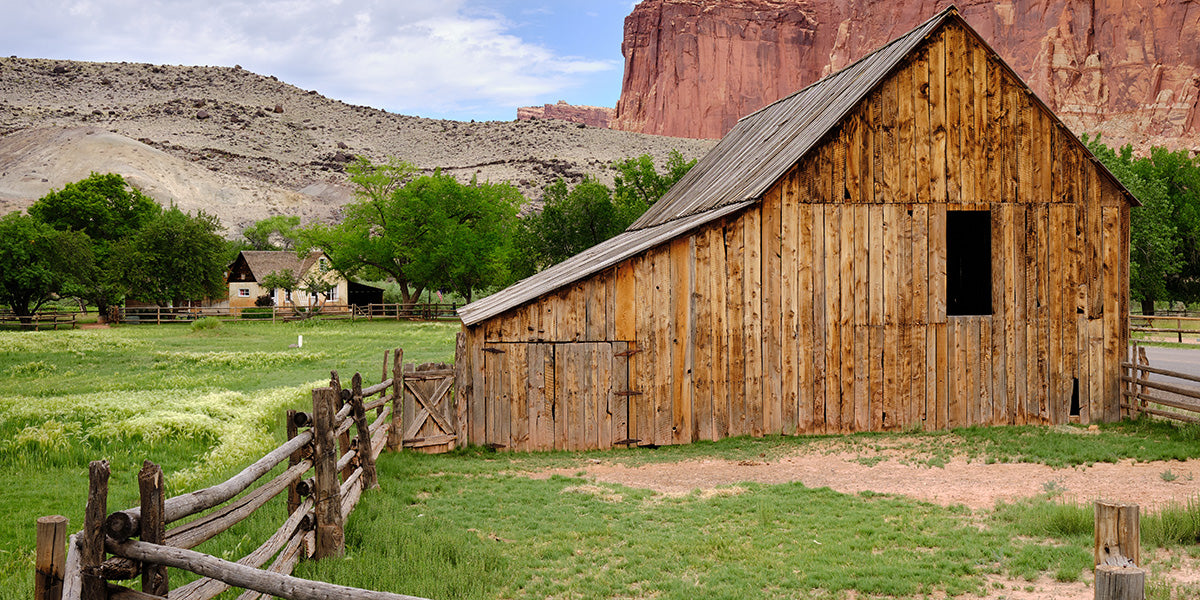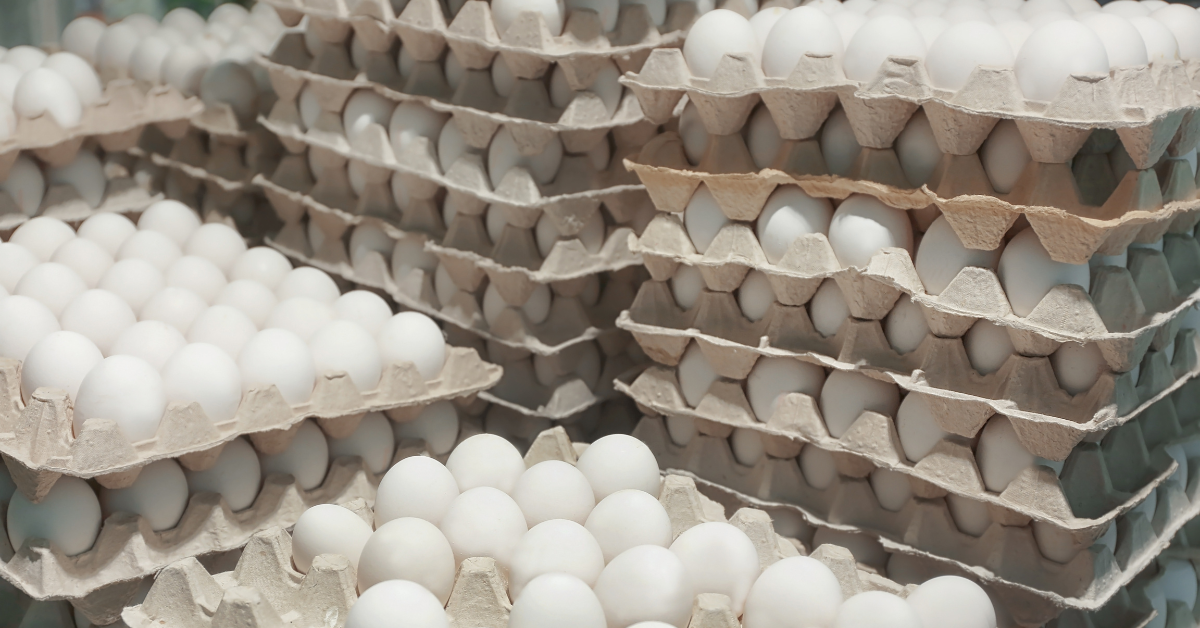In North America, the cost of living has been on a sustained upward trend, with inflation reaching a four-decade high. This trend has increased pressure on personal budgets as the cost of necessities such as gas, groceries, and everyday bills continues to escalate.
For some, however, the solution to this financial stress lies in an increasingly popular lifestyle choice: off-grid living. Some reports estimate that about 250,000 or more people in the US now enjoy this alternative lifestyle because of its many advantages, such as increased self-sufficiency, independence, and freedom.
But what is off-grid living? And where are the best places to live off the grid in the US? Read on for our analysis to help you make the best choice for your future.
The Art and Science of Living Off the Grid
What exactly is off-grid living? And where are the best places to adopt this self-reliant lifestyle in the US? Read on for our analysis to help you make the best choice for your future.
How Off-Grid Living WorksOne vital aspect of successful off-grid living that's often overlooked is learning new skills. From repairing solar panels to gardening and preserving food, there are a variety of hands-on skills you'll need to master to effectively live off the grid. But don't let this intimidate you. With determination and a sense of adventure, these skills can add to your overall sense of achievement and independence.
Off-grid living refers to a lifestyle where individuals or households disconnect from the local power grid and other conventional utility systems, such as municipal water and sewer. To sustain this independent way of life, it's essential to have reliable off-grid water systems that provide a consistent water supply for drinking, cooking, and other household needs.
This lifestyle appeals to people seeking independence and self-sufficiency because it allows them to live outside of established institutions. Plus, it can even be a good way to save some money!

The Upsides and Downsides of Living Off-Grid in the United States
Living off-grid in the U.S. isn’t always easy and can result in extra chores and work to be done on your property. For example, you may have to source your water, take care of solar panels, conduct repairs on your personal electrical system, and grow your food.
However, with this being said, there are numerous advantages to living off-grid that outweigh the disadvantages:
-
A sense of fulfillment
-
Greater independence
-
Cost savings
-
Environmental benefits
-
Greater sustainability
-
A smaller carbon footprint
Essential Factors for Successful Off-Grid Living
Another important consideration when going off-grid is the potential for generating your own power. Utilizing renewable energy sources such as solar panels or wind turbines can provide the electricity needed for your daily life. In fact, many states offer incentives or rebates to homeowners who install renewable energy systems, reducing the initial cost.
Making the leap to off-grid living can be a big step! When looking at property to purchase, you’ll want to keep the following things in mind:
-
Cost of land
-
Local climate
-
Property tax laws
-
Water
-
Zoning laws
The Cost of Buying Off-Grid Land
The land you purchase needs to be affordable and within your budget. Cheap land may have drawbacks, such as being prone to annual flooding and thus unsuitable for farming. However, the cost may be worth the risk.
Be diligent when conducting your research to find land for sale. For example, flood maps are available online through FEMA. You can also access information about areas with forest fire potential through the United States Geological Survey (USGS). 
The Local Climate
When you are off-grid, the local climate and weather become important factors. Essentially, you are less insulated from the elements.
For example, if you are hoping to self-sufficiently farm your land, the annual rainfall will be important because you won’t have access to municipal water. Or if you want to raise animals, finding a solution for keeping them protected from the elements is critical. In addition, heating your home during the cold winters is an extra obstacle, since you won’t be connected to municipal gas or electricity.
For these reasons, it’s essential to consider the climate in which the land is located. In general, living off the grid introduces extra obstacles to overcome—but none of them is impossible.
Local Property Tax Laws
Ideally, you want to seek out an area with low property taxes. Typically, agricultural land is less expensive than land zoned as residential. However, these parcels of land tend to be larger and require more cash upfront to purchase. In addition, each state will have different laws regarding the legality of building dwellings on land zoned for agricultural usage.
The Accessibility of Water (or Lack Thereof)
Water access is a big consideration when it comes to purchasing your off-grid property. You may be lucky and have fresh groundwater on your property, in which case digging a well can give you access to it. If groundwater can’t be located, you may have to truck your water in.
Another option is to construct a rainwater harvesting system. In most of the United States, it is legal to collect rainwater. Only Colorado and Utah have restrictions regarding harvesting rainwater.
In addition, it’s important to know that each state has its own approach to water rights. For example, states on the East Coast have more liberal policies. They tend to have “riparian water rights,” which means if you have access to water on your land, you can use it.
On the other hand, in the western United States, many states have “prior appropriation” water rights. With this system, water rights are given to the person with the oldest date of use. With this “first in time, first in right” system, you may have a river or stream on your property, but no rights to the water.
Remember—even if the land is cheap, you may consider looking elsewhere if the solution to water accessibility becomes too troublesome and expensive.
Local Zoning Laws
As stated above, if your property is zoned for agricultural use, your taxes will likely be lower. You can often get a property rezoned as agricultural if you can prove there is adequate reason to do so. However, this requires raising livestock or growing crops in certain amounts.
The Top 5 Best States to Live Off The Grid
Finding the right property for the best place to live off the grid can take time and effort. However, when you find a parcel of land that will allow you to accomplish your off-grid lifestyle, all the hard work will be worth it.
To help you start brainstorming, we compiled a list of the top 10 best states for off-grid living.
Living Off-Grid in Texas
Known for its affordability and accessibility, Texas makes a compelling location for off-grid living. With lower property taxes and cheaper land, the cost of living in Texas is significantly lower than in other states.
In addition, certain counties in Texas have no building codes, allowing for more freedom and creativity in the design and construction of homes. The ease of obtaining water rights in Texas is also a critical factor for off-grid living, as access to a reliable water source is essential.
The state's warm climate and productive growing season further enhance its viability for off-grid living by allowing for more productive agriculture and food self-sufficiency. Overall, Texas presents a rich tapestry of opportunities for those seeking a life disconnected from the traditional electrical grid.
Living Off-Grid in Wyoming
Wyoming, known for its breathtaking natural beauty, offers a unique opportunity for those looking to live off the grid. With abundant outdoor recreational activities, from hiking to hunting, Wyoming offers the chance to be surrounded by nature and live a life unencumbered by city life.
In addition to its resources, Wyoming is recognized as one of the most freedom-oriented states in the U.S., allowing those who live off the grid to do so with minimal government interference. With its combination of beauty, practicality, and freedom, Wyoming is truly a state that stands out as a top destination for off-grid living.
Living Off-Grid in Montana
In Montana, living off the grid is a way of life embraced by many who seek a simpler and more self-sufficient existence. Montana's natural beauty is one of its most striking features, offering endless opportunities for outdoor recreation, including hiking, camping, fishing, and hunting.
But what sets Montana apart from other states is its commitment to freedom, with a highly libertarian approach to government intervention. This combination of natural beauty, favorable climate, and commitment to individual freedom makes Montana an attractive destination for those who want to live off the grid.
Living Off-Grid in Iowa
In Iowa, the off-grid lifestyle is more than a possibility—it's a reality. Since it's one of the most affordable states in the US, Iowa is an accessible option for those seeking an affordable way of life.
The state is known for its agriculture, with a long growing season and fertile soil, making it an ideal location for those seeking self-sufficiency and food security. Iowa's humid continental climate, with hot summers and cold winters, offers the opportunity to experience the full range of seasons, making it a well-rounded choice for those looking to live off the grid.
Living Off-Grid in Missouri
Missouri is one of the friendliest states regarding regulations that allow off-grid living. There is still a lot of rural land in Missouri without any zoning laws. In those areas, all you have to do is follow local building codes, including connecting to the sewage system or installing a septic system.
Farmland has lower property taxes in Missouri. Therefore, you can save a lot of money by using your land to raise agriculture and animals.
Furthermore, there are no laws prohibiting you from disconnecting from the municipal power grid. Even better, the state offers exemptions from property tax if the solar panels increase your property value.
Lastly, Missouri is a water-rich state. It has relaxed riparian water laws that allow reasonable use of all water on and under your land—and rainwater harvesting is 100% legal.
The Quest for Off-Grid Living in Other States
North Dakota
In the rugged, windswept prairies of North Dakota lies a hidden gem for those seeking off-grid living. This oft-overlooked state is full of potential for those who want to experience the freedom and self-sufficiency associated with living off the grid.
North Dakota's climate, with its long, harsh winters and short, warm summers, is in stark contrast to the warmer climates of many other states. However, it is this harsh climate that attracts those seeking a challenge and a break from the norm.
And with a well-developed infrastructure, North Dakota offers a wealth of resources and amenities for those who live off the grid. From clean water and abundant resources to a thriving community of like-minded individuals, North Dakota is a highly viable and attractive option for anyone looking to escape the constraints of modern society.
Kentucky
In the world of off-grid living, Kentucky stands out as a hidden gem. Located in the heart of the USA, this state offers a unique combination of affordability and agriculture. The cost of living in Kentucky is among the lowest in the country, with property taxes and land prices significantly lower than in other states. This affordability makes Kentucky a prime destination for those seeking a self-sufficient lifestyle.
What sets Kentucky apart, though, is its agriculture. With a long growing season and fertile soil, Kentucky is known for its agriculture, providing ample opportunities for those who want to grow their food. To top it off, the state has a humid subtropical climate with hot summers and mild winters, providing a balance of seasons for those who want to experience the full range of weather.
[product_render product-handle="72-hour-emergency-food-kit"]
Oklahoma
Oklahoma offers a diverse range of off-grid living opportunities, from the plains of the West to the mountains of the East. Located in the heart of America, this state offers a rare combination of affordability and diversity. With a relatively low cost of living compared to other parts of the country, Oklahoma is an ideal choice for those looking to live off the grid without breaking the bank.
But cost is only one aspect of the equation. Oklahoma also boasts a diverse climate, with mild winters and hot summers that support a wide range of outdoor activities and survival gardening. In addition, the state is known for its abundant natural resources, including rivers, lakes, and forests, that make it a prime destination for fishing, hunting, and other outdoor pursuits. In conclusion, Oklahoma is a hidden treasure that should not be overlooked by those seeking an affordable and diverse off-grid lifestyle.
Minnesota
Minnesota is a diamond in the rough. This is another state that offers a fantastic combination of affordability, sustainability, and beauty. But affordability is only the beginning. Minnesota is known for its high-quality water resources, making it an ideal destination for those who want to live sustainably and rely on their water sources—or those who just want to enjoy solid fishing!
The state is also home to a thriving agricultural community, with plenty of opportunities to grow your food, raise livestock, and participate in local markets. In short, Minnesota is a great option that should not be overlooked by those seeking an affordable and sustainable off-grid lifestyle.
New Mexico
In New Mexico, the confluence of climate, cost of living, culture, and natural beauty make it an ideal place for those looking to live off the grid. With a diverse range of environments, from warm deserts to high mountains and abundant sunshine, New Mexico offers outdoor enthusiasts ample opportunities to explore and experience the great outdoors.
The state's relatively low cost of living, especially in terms of affordable desert land, also makes it an attractive option for those looking to live off the grid on a budget, but you may have to make plans for an off grid water system. And for those who appreciate history, New Mexico's rich cultural heritage and vibrant artistic community make it a cultural hub, further enhancing the state's appeal as a place to live.
Arkansas
Located in the heart of the American South, the state of Arkansas offers a unique blend of natural beauty and resourcefulness that makes it an attractive location for those seeking a life off the grid. With its diverse landscape of rolling hills, fertile river valleys, and dense forests, Arkansas offers an ideal location for those who wish to disconnect from the modern world.
The state has a long history of self-sufficiency, with generations of families relying on the land to provide for their needs. Today, this spirit of independence still thrives, with a growing community of “off-gridders” drawn to Arkansas for its natural abundance, enough rain for DIY rainwater collection, and a strong sense of community. Whether looking at starting a homestead, hunting, fishing, or just living a simpler life, Arkansas offers endless opportunities for those seeking a more sustainable way of life.

Combining Off-Grid Living with Emergency Preparedness
Living off the grid is a wonderful way to lead a simpler lifestyle. Unfortunately, however, off-grid living does not prevent you from feeling the effects of certain emergencies, like natural disasters. Therefore, you should prepare for emergencies just like you would if you still lived in the city.
Luckily, many of the skills you possess and use daily, like performing first aid, preserving food, and identifying plants, can be helpful in the aftermath of an emergency. Nevertheless, depending on your lifestyle, the one thing you may lack is long-term emergency food storage.
Therefore, we cannot understate the importance of having a long shelf-life emergency food storage as part of your off-grid lifestyle. This step ensures your safety and survival in unforeseen situations where regular food supply chains might be disrupted. Here at Valley Food Storage, we provide high-quality, long-lasting, and nutritious emergency food suitable for any off-grid living scenario.
A cache of freeze-dried and dehydrated emergency food is the perfect complement to off-grid living for various reasons. Professionally prepared and packaged emergency food…
-
requires no special refrigeration;
-
is effortless to prepare (just add water);
-
is nutritionally dense and delicious;
-
and has a shelf-life of 25+ years.
Final Thoughts: Developing Skills for Living Off-Grid
Living off the grid may not be for everyone. It requires a lot of work, as well as adapting to living without many of the luxuries you are used to. In addition, it requires a lot of learning new skills to reach an satisfactory level of self-sufficiency.
For example, you can learn about solar power, battery-operated generators, trapping, fishing, hunting, a DIY root cellar, growing your food, canning, pickling, dehydrating food, chopping wood, DIY bucket toilets, mechanics, and construction.
Being prepared also includes education and networking with other off-gridders. Websites and online forums dedicated to off-grid living can be a valuable resource, providing tips and advice from those who have already taken the leap. These communities are also an excellent place to learn about potential legal issues that could arise, as some places have zoning laws and regulations that may impact your ability to live completely off the grid.
One aspect of off-grid living that is often overlooked is communication. While living off the grid offers many benefits, it can also be isolating. Investing in reliable communication tools, such as satellite phones or ham radios, can provide a lifeline to the outside world when needed. It’s also wise to establish communication strategies with friends or family who live nearby, as they can provide additional support and resources in case of an emergency.
Even when living off the grid, it's important to stay aware of your local weather conditions and natural disaster potential. Familiarize yourself with common natural disasters in your area and ensure your off-grid living arrangements and emergency preparedness plans are ready to face them. Staying aware and prepared, regardless of how far off-grid you go, is a key element in ensuring your safety and survival.
When it starts to feel overwhelming, just remember that the autonomy and security you gain with an off-grid lifestyle can be worth the work.
We hope you found this article helpful. Visit our website to start prepping your emergency food, or head over to our Practical Prepper Blog to keep learning.
Frequently Asked Questions
Where Can I Live Off-Grid in the USA?
Technically speaking, you can live off the grid anywhere in the US. The trouble comes when some equipment and systems commonly used to live off the grid are banned in certain areas. Some regions and municipalities have laws and codes that restrict the use of things like composting toilets, rainwater collection systems, and solar panels, and they also may restrict the raising of livestock. This is more common in urban and suburban areas. Generally speaking, rural areas are more open to off-grid living.
Is Living Off The Grid Cheaper?
Setting up an off-grid homestead can indeed take a solid investment to get started. You need to pay for your land and the materials to build your home, plus pay for ways to generate energy, like buying solar panels. Once you’re set up, though, off-grid living can be more cost-effective. Living more frugally and less extravagantly can also lead to fewer expenses.
This being said, there are hidden costs some people don’t think of, such as:
-
Increased fuel costs for transportation in rural areas
-
Higher property taxes
-
Replacing aging solar panels
-
More tools and equipment as you become self-sufficient
-
The cost of drilling a well
When done right, living off the grid can be cheaper, but this depends on your current on-grid lifestyle.
Where Is the Cheapest Place to Live Off-Grid?
There are different opinions regarding the cheapest place to live off-grid in the United States. However, an expert from off-grid Permaculture considers Alabama the cheapest state for off-grid living in the U.S. This is due to cheaper land, lower property tax rates, and counties with few building codes.
Where In The US Can I Live Off the Grid For Free?
Living off-grid always comes with costs, and you can’t do it for free. You will need a certain amount of cash flow to survive, if only to pay your property tax. That being said, many places are offering free land in remote areas in exchange for building a home and living in this space for a set period of time. 
How Much Would it Cost to Go Completely Off-Grid?
The cost of off-grid living can vary widely. If you have a larger homestead, it will come with greater costs. Experts estimate that off-grid living can cost anywhere from about $12,000 to $450,000 to start out. Your monthly expenses, including housing, gardening, water, and heat, can average between $35 and $2,000+ per month. Much depends on your available equipment, survival skills, and infrastructure.
In general, you can anticipate paying between $50,000 and $100,000 for your land and the same to create your home, including your electricity-generating system (solar or wind power).



